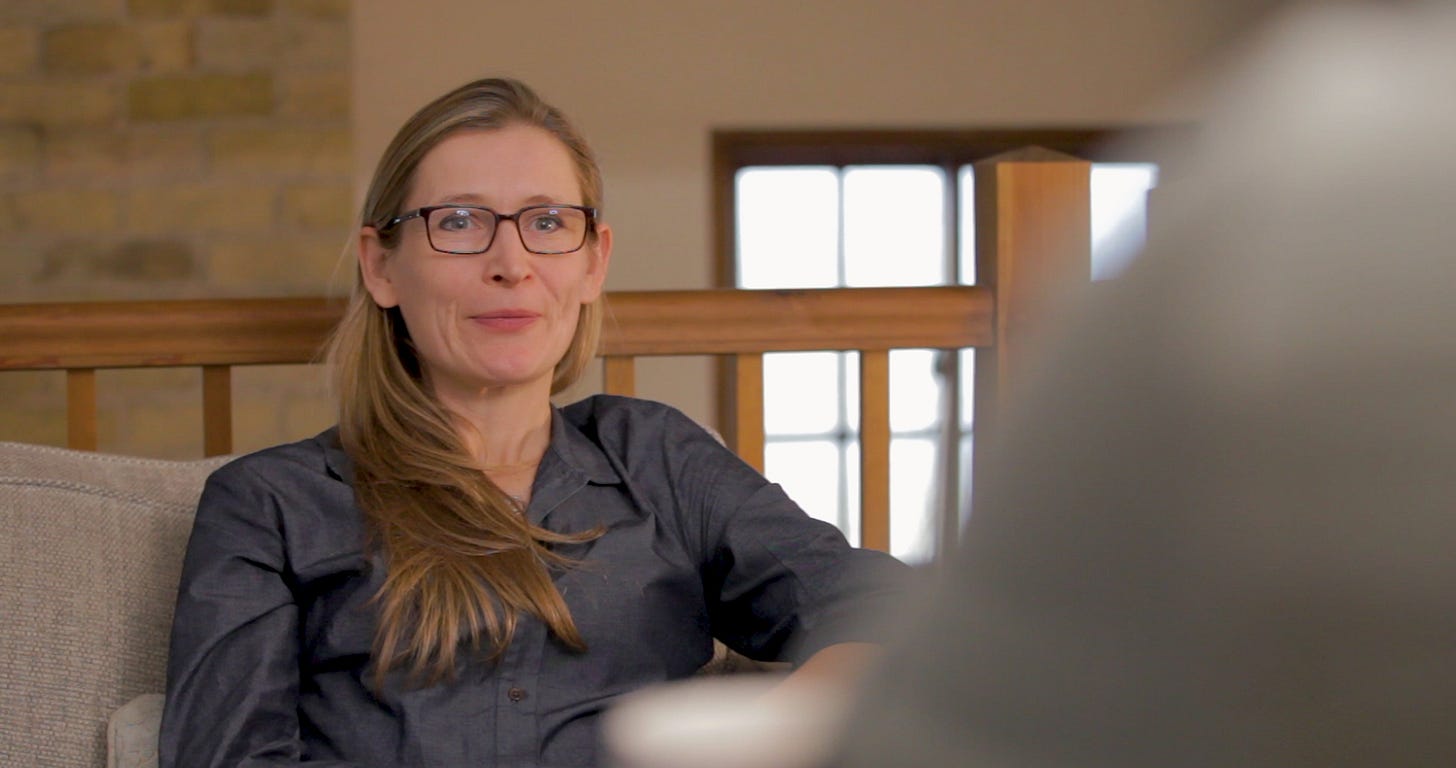Mary Harrington in the Cyborg Theocracy | Part One
Standing Reserve
Mary Harrington is a web nerd and besotted mother of one from a small market town in the English countryside. She also happens to be a rising star of the dissident literary underground.
She calls herself a “reactionary feminist,” and if that combination of terms reads like “firefighting arsonist” to you then I suggest you see how she reconciles them in her new book Feminism Against Progress - “FAP” for short.
Something I like about Mary is her use of playful terms to describe contemporary phenomena. She invented “swarmism” to describe a new form of unaccountable network power, “meat lego Gnosticism” refers to a disembodied, dehumanising perspective that reduces human bodies to interchangeable parts, and “human centipede culture” is the endless stream of remakes, sequels, and imitations, the culture industry insists on force-feeding us. When she started using “Cyborg Theocracy” to describe aspects of the social movement commonly referred to as “Woke”, I had to learn more.
I watched with fascination as social media matured through the 2010s and enabled moral communities to coalesce digitally and form mass-scale social movements. As factions skirmished across the platforms, the movement known as “Woke” took hold of the established media and began exerting an outsized influence over the political and cultural domain. As I examined the contours of this new media landscape I saw nothing of ‘the marketplace of ideas’ I’d been led to believe existed but instead a large complex of consensus manufacturing machinery. This machinery was guided by a set of doctrines that I traced back to the university where I found a collection of activist disciplines that proceeded from a canon of theory that had been decades in the making.
I took to calling this massive body of work a ‘theology’ for lack of a better description because it was unlike any other theoretical work I’d seen before and looked more like theology than scientific enquiry. It’s first and foremost a moral framework with a distinctive metaphysic that essentially boils down to a set of beliefs and practices pertaining to ‘power’ - a concept they treat very much like a god. Seeing Mary use the word “theocracy” to describe the illiberal governance that proceeds from this moral paradigm made me think I’d found someone who saw all this as I did.
We arranged to meet in person to see if we were in fact mapping the contours of the same beast and I brought my camera along to share it all with you.
What I discovered was a different frame for the movement I’d been tracking. For Mary, the theology I described above is just one set of influential doctrines within a larger moral and political paradigm she calls the “Cyborg Theocracy”. She’s left me with a lot to think about and perhaps reconsider.
I’ve split our discussion into two parts. In part one (above), we attempt to describe the Cyborg Theocracy and some of its implications. In part two (below), Mary and I look at the saints and priestesses of Cyborg Theocracy.



Fascinating stuff. I've just finished reading Feminism Against Progress and I think Mary is one of the most important writers in the world right now. Looking forward to part 2.
Is Mary Waffle House Wendy?
https://youtu.be/uz0hWpJvyaw